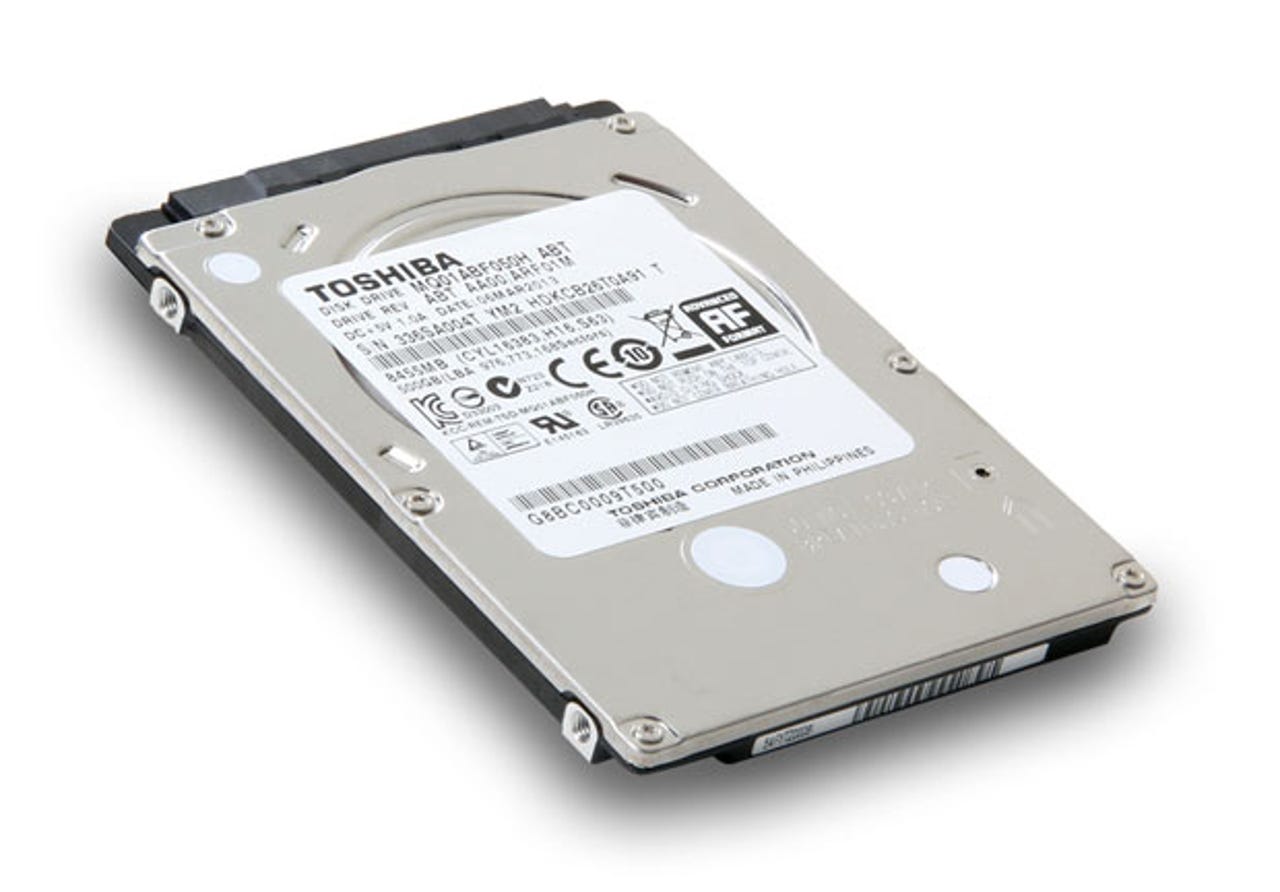Samsung, Toshiba introduce new storage drives for Ultrabook laptops


As laptops get thinner and lighter, storage has had to keep pace to help shave valuable pounds and inches off of Ultrabooks and related svelte notebooks. In the last couple of days, Samsung and Toshiba have both announced new drives that should help manufacturers continue to maximize storage capacity and space savings.
Toshiba has continued the trend of using hybrid drives -- combining a traditional hard drive with a dash of solid-state storage -- to help keep the price down on some Ultrabooks, instead of relying on more mobile, but more expensive pure SSD drives. Its new MQ01ABFH series are the company's first 7mm hybrid drives, using either 320GB or 500GB magnetic hard disks along with a small amount of NAND flash memory for quick boot-ups.
The company already offers 9.5mm hybrid drives in 750GB and 1TB hard drive capacities. Like those drives, the new MQ01ABFH family relies on self-learning algorithims in order to monitor and improve performance depending on the user's data habits. Toshiba has not disclosed which laptops will make use of the new drives, though it says it has successfully tested the compatibility of the MQ01ABFH series with 175 existing PCs and that samples will be available starting at the end of the month.
Samsung has chosen to go all-in with solid-state with its XP941, which is the first SSD for Ultrabooks that uses the PCI Express interface. It's also the same drive that Apple has placed in the latest version of its MacBook Air. The shift away from the SATA interface means improved performance for the XP941 drives, which will be available in 128GB, 256GB, and 512GB capacities. The company claims that the new drives deliver 1,400MB/s sequential read performance, which is about 2.5 times faster than the fastest 2.5-inch SSDs -- in a package that takes up just a ninth volume of a 2.5-inch drive, according to Samsung.
Manufacturers have already started receiving the XP941 to use in new laptops, but you'll have to wait a little longer for PC notebooks possessing the new drives. The good news, though, is that the performance gains appear to be worth the wait.